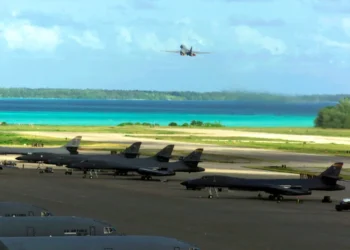The unfolding process of improving relations between Iran and Saudi Arabia is proceeding fast. The two countries have already restored diplomatic relations, pledged to minimize tensions in Yemen and elsewhere across the Middle East, and there are active discussions on the development of closer economic ties. At the moment, the normalization of relations has not been fully completed, and the two countries will need to solve many outstanding security issues (for example, in the Persian Gulf). However, current trends indicate that, contrary to many contrary expectations, Riyadh and Tehran will achieve a significant improvement in bilateral ties.
In general, it should be said that the process of reconciliation fits into the overall trend across most of the Middle East. In 2023, a certain period in the history of this region ended, which for the last twenty years was characterized by wars and rivalries within the Arab world. What started with the US war on Iraq in 2003 ended with the settlement of relations between Saudi Arabia and Iran, and simultaneous multiple normalization processes between the Arab states. All countries of the Persian Gulf are thinking about restoring the severed diplomatic relations with their respective neighbors, and the Arab countries of North Africa are pursuing the same strategy. Even diplomatically and politically isolated Syria has been brought back into the Arab League.
Part of this normalization dynamic can be seen in the negotiations between Israel and Saudi Arabia to improve relations. However, if Israel was trying to isolate Iran with this move, thus thinking of forming a kind of anti-Iranian Israeli-Arab alliance, today it is clear the plan did not work. The reason is simple: Iran and several Arab countries have taken significant steps towards normalizing relations.
In a way, a new, multipolar period has begun in the history of the Middle East. If since the 1990s the US played a central role, in recent years and especially months, we see China, before that Russia, and to a certain extent India trying to use regional countries’ dissatisfaction with Washington to spread their own geopolitical influence.
Moreover, we can look at these ongoing processes from a longer-term perspective. Since the nineteenth century, when the role of Western countries in the Middle East increased dramatically, there is hardly any other historical period in which such a diversity of great powers was represented in the region.
Consider China’s positioning. Seeing that dissatisfaction with US policies is growing among the Persian Gulf countries, Beijing is successfully consolidating its position, both economically and politically. In a way, China, albeit indirectly, is carefully trying to present itself as a certain geopolitical alternative to the US. This is well understood by the countries of the Middle East, traditionally closely connected with America. For them, deepening relations with China represents a chance to form a more diversified foreign policy, which will not be focused on any single big player.
For Saudi Arabia, the United Arab Emirates, and other crucial Arab countries, US foreign policy in the Middle East is no longer associated with the security guarantees they hoped for. For them, Washington is allegedly shifting all its attention to Ukraine and the Indo-Pacific to focus more on China. Therefore, the only alternative for Saudi Arabia was to resolve relations with Iran, as well as to use the growing role of China to build a more balanced foreign policy.
This does not mean that Saudi Arabia or other Arab countries no longer want to enjoy close ties with the US. On the contrary, they push for more expansive geopolitical ties. For example, Saudi Arabia wants from Washington clearer security guarantees and more extensive cooperation in the military sphere. The same could be argued about other Gulf States for whom the US military presence remains an irreplaceable factor.
Nor do they look at China as a country which they want to play a dominating role across the Middle East. Those times are gone. No single power will be able to exclusively dominate the Middle East the way the US and generally the West was able to do. In other words, today, in the Middle East, a multi-vector foreign policy is considered a more efficient tactic, which enables small and so-called middle powers to act more boldly while increasing their own regional status.
Analysis by Emil Avdaliani
Emil Avdaliani is a professor at European University and the Director of Middle East Studies at the Georgian think-tank, Geocase.














